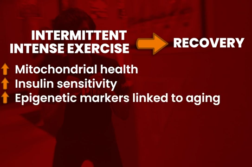CLEVELAND, Ohio. (Ivanhoe Newswire) — A year ago, Jeopardy host Alex Trebek announced to the world he had stage four pancreatic cancer. It’s a devastating diagnosis. He had only an 18 percent chance to survive a year. Trebek beat the odds, but not everyone is as lucky. Pancreatic cancer is one of the few cancers for which survival has not improved for more than 40 years! But now, a new way of detecting markers for this deadly disease in its earliest stages may help impact the chances of surviving it.
Oscar and Dexter are just what the doctor ordered. It’s been an exhausting year for Beverly Leighton after being diagnosed with pancreatic cancer. She watched her mother and grandfather die from the disease and feared she would be next.
“Detecting it late is often a fatal sentence,” detailed Amitabh Chak, MD, a gastroenterologist at University Hospitals in Cleveland.
Doctors at University Hospitals in Cleveland are part of the CAPS 5 clinical trial to identify markers for detecting pancreatic cancer long before symptoms appear and before it spreads.
Dr. Chak explained, “The pancreas is not surrounded by a capsule. So the cancer tends to spread much more rapidly.”
By testing specific markers in blood and pancreatic fluid, doctors hope to find the cancer in its earliest stage. For Bob Adelman, the yearly tests give this father of three peace of mind. His mother died of breast cancer. He and his sister tested positive for the BRCA1 gene, putting them both at a high risk for pancreatic cancer.
Adelman told Ivanhoe, “I’ve got a lot riding on. I’ve got these three kids and I want to be here for them.”
So far so good for Adelman and his sister.
Marnie Fletcher said, “It wasn’t really a hard decision at the time. It was like, I didn’t feel like there were really any other options.”
The test caught Beverly Leighton’s cancer early—stage I. After surgery, chemo, and radiation Leighton believes this test is truly a life saver.
“Just feel blessed that all the stars aligned and I was in the right place at the right time to catch the cancer early,” explained Leighton.
There is no sure way to prevent pancreatic cancer. Some risk factors such as age, gender, race, and family history can’t be controlled. But Dr. Chak said obesity and smoking are two things you do have control over. Also, limit your alcohol and your exposure to carcinogens. Patients in the trial are followed for ten years, with annual checkups and testing. They are still accepting patients into the trial. To find out more, log on to www.clinicaltrials.gov.
Contributors to this news report include: Cyndy McGrath, Supervising Producer, Marsha Lewis, Field Producer; Kirk Manson, Videographer; Roque Correa, Editor.
To receive a free weekly e-mail on Medical Breakthroughs from Ivanhoe, sign up at: http://www.ivanhoe.com/ftk
MEDICAL BREAKTHROUGHS
RESEARCH SUMMARY
TOPIC: DETECTING PANCREATIC CANCER EARLIER THAN EVER BEFORE
REPORT: MB #4721
BACKGROUND:
Pancreatic cancer occurs when cells rapidly grow around the pancreas, which is an organ that aids in digestion and regulates blood sugar. It is usually detected in later stages because it doesn’t cause symptoms until it has already affected other organs. These symptoms may include abdominal pain, loss of appetite or weight loss, jaundice, itchy skin, blood clots, and fatigue. While the true cause of pancreatic cancer is unknown, some risk factors include smoking, diabetes, obesity, old age, and having a family history of either pancreatic cancer or genetic syndromes that can increase cancer risk, including a BRCA2 gene mutation, Lynch syndrome and familial atypical mole-malignant melanoma (FAMMM) syndrome.
(Source: https://www.mayoclinic.org/diseases-conditions/pancreatic-cancer/symptoms-causes/syc-20355421)
DIAGNOSING:
Detecting pancreatic cancer early on is rare, as symptoms don’t usually show until the cancer has progressed to other parts of the body. Once symptoms occur, doctors will conduct tests as well as view medical history. The imaging tests use x-rays, magnetic fields, sound waves, or radioactive substances to visualize the inside of the body. A biopsy may be conducted, which is when a piece of tissue is taken out for examination. Blood tests may be run to see how the liver is functioning and if a tumor can be marked.
(Source: https://www.cancer.org/cancer/pancreatic-cancer/detection-diagnosis-staging/how-diagnosed.html)
EARLIER DETECTION:
Doctors at University Hospital in Cleveland, Ohio are a part of the CAPS5 clinical trial to identify people who are at high risk for developing pancreatic cancer, and image them every year to try to detect the cancer before it becomes symptomatic. Patients may include people above 50 who have a family history of pancreatic cancer. Doctors conduct a selective screening every year to recognize any changes or progressing symptoms. If the pancreatic cancer is detected at an earlier stage, doctors will be able to start surgery, radiation, and chemotherapy earlier to relieve pain and growth.
(Source: https://clinicaltrials.gov/ct2/show/NCT02000089)
FOR MORE INFORMATION ON THIS REPORT, PLEASE CONTACT:
Jeannine Denholm, Media Relations
University Hospitals
Jeannine.denholm@uhhospitals.org
216-286-9047
If this story or any other Ivanhoe story has impacted your life or prompted you or someone you know to seek or change treatments, please let us know by contacting Marjorie Bekaert Thomas at mthomas@ivanhoe.com




